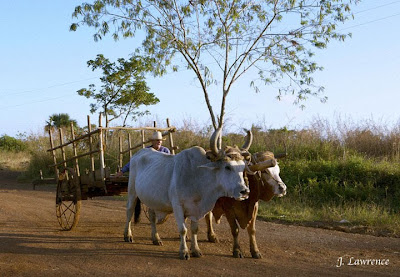Well, we have got 12,500 litres worth of rainwater storage, which flushes the toilet, and waters the garden...macdoc wrote:
India and China and Australia are facing the first right now.
Old Mebourne town is getting a bit dry...
Well, we have got 12,500 litres worth of rainwater storage, which flushes the toilet, and waters the garden...macdoc wrote:
India and China and Australia are facing the first right now.
Dry as a dead dingo's donger.JimC wrote:Well, we have got 12,500 litres worth of rainwater storage, which flushes the toilet, and waters the garden...macdoc wrote:
India and China and Australia are facing the first right now.
Old Mebourne town is getting a bit dry...
Right now the world is divided into two distinct categories, often referred to as the "have's" and the "have not's," and it's impossible to discuss sustainability in terms of the whole, we have to look at each categeory individualy because their problems and potential solutions are unique unto themselves.Reverend Blair wrote:I ceased to be amazed a long time ago, now I'm just entertained. I think it helps if you drink.This isn't directed at anyone, but I never cease to be amazed by all the bickering.
What is the the sustainable manner for this level of convenience at this level of population? I mean, I really don't want to go back to some sort of pre-industrial society. Horses and oxen are too much fucking work and I've already split enough firewood for one lifetime, thanks. I've seen no evidence that we can live sustainably at present levels though. In fact, from everything I've seen, zero growth isn't enough of a reduction. We need some serious negative growth. Either that or I need to start carving an ox yoke.I see no issue with having the same level of convenience we enjy now but in a sustainable manner.
Given the rather excruciating and dangerous nature of the mess the "have's" are in, I'm perfectly content to question economic growth and I could care less about being known as a lunatic, idealist, or revolutionary, and whatever demeaning terms MacDoc might choose to levy at me bother me not.Every society clings to a myth by which it lives. Ours is the myth of economic growth. For the last five decades the pursuit of growth has been the single most important policy goal across the world. The global economy is almost five times the size it was half a century ago. If it continues to grow at the same rate the economy will be 80 times that size by the year 2100.
This extraordinary ramping up of global economic activity has no historical precedent. It’s totally at odds with our scientific knowledge of the finite resource base and the fragile ecology on which we depend for survival. And it has already been
accompanied by the degradation of an estimated 60% of the world’s ecosystems.
For the most part, we avoid the stark reality of these numbers. The default assumption is that – financial crises aside – growth will continue indefinitely. Not just for the poorest countries, where a better quality of life is undeniably needed, but
even for the richest nations where the cornucopia of material wealth adds little to happiness and is beginning to threaten the foundations of our wellbeing.
The reasons for this collective blindness are easy enough to find. The modern economy is structurally reliant on economic growth for its stability. When growth falters – as it has done recently – politicians panic. Businesses struggle to survive. People lose their jobs and sometimes their homes. A spiral of recession looms. Questioning growth is deemed to be the act of lunatics, idealists and revolutionaries.
Here are some of the comments in response to this blog post:from: http://blogdredd.blogspot.com/2010/04/war-of-warms.html
Yesterday Ecocosmology Blog had a post about a global warming scientist, a geologist, who had predicted, over 2.5 years before it erupted, the current volcanic eruption in Iceland that has shut down air traffic in Europe.
(note" I've never never heard this myself nor di I recall seeing the story go by in the media).)
A while back Dredd Blog had a post about a lawsuit concerning global warming, where the plaintiffs won a temporary appellate victory against oil companies.
They had sued oil companies for causing global warming, which caused storms to increase in severity, damaging their properties when hurricane Katrina hit the coast.
They had lost in the federal district court, had won the appeal heard by three judges of the Fifth Circuit Court of Appeals, but had lost in their opposition to having it re-heard en banc (before all the judges on that court).
The case is now pending an oral argument hearing before all of the judges of the Fifth Circuit, while both sides prepare their briefs and prepare for that oral argument.
It seems to me that if the Fifth Circuit judges knew of the scientist who predicted catastrophe in the exact place it happened with the Eyjafjallajökull volcano, the case could be made stronger that environmental damage was foreseeable to oil companies, like cancer was foreseeable by tobacco and asbestos companies.
The tobacco and asbestos companies historically had lied under oath before congress, their lawyers had continually argued that the damage to individuals was not foreseeable, and therefore not a "proximate cause" of the injuries which the plaintiffs suing them had suffered.
The tobacco and asbestos companies eventually lost that argument so their practices were modified by the judicial system.
This would be a good time for that to happen to the oil complex because they are stuck in the exact same mindset as the tobacco and asbestos companies were ... "what damages ... what proximate cause."
I suppose as much is possible, especially as the physical evidence of warming accumulates and as the blogger wrote, "becomes incontrovertible."5 comments:
disaffected said...
Good post, although law suits alone will never put a stop to the companies profiting from current energy arangements. There's just entirely too much profit in continuing business as usual. Besides, there's no other source of energy in the offing that would even remotely make up for fossil fuel shortages in the short term, so its really a moot point.
As to long term effects and the prospect of getting government intervention, it will continue to play out like it is now. Energy companies will continue to dispute the evidence at every turn, demanding hyper unrealistic proof of global warming before acting, knowing full well the the public will go alonmg with whatever's best for them in term's of short term economics. Worse, as the evidence for global warming becomes incontrovertible, they'll react by saying, "Oh shit, you were right. Unfortunately, the damage has already been done. Better to switch our efforts to dealing with the negative effects." And in fact, they WILL be right at that point, the damage will already be done and the only remaining actions to take will be to deal the consequences.
Three interlocking factors guarantee that all of this is going to end VERY badly. 1. Climate change is real and catastrophic effects are already locked in due to current and past emissions. 2. Peak oil is real, we've already passed it, and oil is only going to get more expensive and harder to come by from here on out. 3. Nearly every government on earth, and none more so than the US, is wedded to fractional reserve banking and MOUNTAINS of debt, and are slaves to the exponential growth equation finanacially. Therefore none can afford the mammoth amount of long term R&D and social support that would actually be required to get the world off of fossil fuels in any reasonable time. Most will never even try at all, meaning a showdown(s) over remaining fossil fuel reserves is inevitable, as are the full effects of global warming.
Finally, the coming military showdowns over resource shortages will actually be an entirely rational act and a good thing from the earth's overall perspective. At 6B and counting, we've clearly exceeded the earth's carrying capacity for humans several generations ago, and the first logical step to getting a handle on our energy abuse will be to cull the heard by a few billion or so. It won't be pretty, but it's absolutely necessary. Here's hoping that it's the 1st world energy abusers who get culled first.
April 18, 2010 9:21 AM
Dredd said...
disaffected,
When catastrophes are predictable by scientists we are already there.
Using denial to put it off in our minds does not change "the real world" around us that is now performing like a Toyota with a bad accelerator pedal.
That denial is based on our fear of death:
"A recent paper by the biologist Janis L Dickinson, published in the journal Ecology and Society, proposes that constant news and discussion about global warming makes it difficult for people to repress thoughts of death, and that they might respond to the terrifying prospect of climate breakdown in ways that strengthen their character armour but diminish our chances of survival. There is already experimental evidence suggesting that some people respond to reminders of death by increasing consumption. Dickinson proposes that growing evidence of climate change might boost this tendency, as well as raising antagonism towards scientists and environmentalists. Our message, after all, presents a lethal threat to the central immortality project of Western society: perpetual economic growth, supported by an ideology of entitlement and exceptionalism."
(Dredd Blog, 3/7/10, emphasis added).
April 18, 2010 9:53 AM
Randy said...
I wonder why the tobacco and asbestos companies didn't argue that the cancer their products would cause would be good for the planet because it would reduce overpopulation?
Hell, maybe they did, but if so that argument didn't work either.
April 18, 2010 9:58 AM
disaffected said...
Yes, the psychological aspects are undeniable as well. I've seen this in action many times in discussions with co-workers and acquaintances who became irrational and visibly upset when the conversation turned to either global warming or peak oil. The very title "doomer" signifies the MSMs attitude toward those who holds those views.
The irrational belief in technology to magically fix any problem great or small is this generation's sham religion, and like all the sham religions before it, it's guaranteed to disappoint. Especially when the science that precedes the technology is skewed by faulty preconceptions as well.
April 18, 2010 10:10 AM
Dredd said...
disaffected,
Agreed.
So many people do not know that scientists know the Sun will destroy the earth and all the planets out to Mars, at least, and therefore those scientists qualify as "doomers".
Good point about the religious aspects ... we need to get busy with real, saving science and losing the 3,000 year old "rocket science" if we are to prevail long term.
In the mean time preventing death is the best reaction to the fear of death IMO.
My point exactly. We are doing little or nothing to reduce emissions or create a truly sustainable alternative. Therefore I must start carving an ox yoke. I'm thinking that big hunk of maple in my yard might be suitable material.Twiglet wrote:Sustainability can be approached from making use of the ideas we have already to do the same things using less energy. Passivhaus design standards are a good example. Using less energy, getting more of it from renewable sources and conserving oil resources for things like plastics and pharmaceuticals rather than putting it through internal combustion engines.
It's also worth pointing out that reversion to the ox and chopping wood by hand are the likely consequence of depleting all our resources before developing sustainable alternative.





What To Do
Amish in Lancaster County
Lancaster County is home to America's oldest Amish settlement, where thousands still live a centuries-old "Plain" lifestyle. It's a place where visitors can step back in time to enjoy a slower, more peaceful pace - where the horse & buggy remains a primary form of transportation, and where windmills dot the landscape, providing a nature-harnessed power source. A vital part of Lancaster County, the Amish are involved in agriculture and an array of cottage industries. Many Amish-themed attractions, events, foods and crafts are available for your education and enjoyment.

Don't you mean riding distance?macdoc wrote:
If you live within driving distance of Lancaster County Pennsysvania it's a wonderful visit if only for the food alone...
It may be your point but it's entirely unrealistic ... because 1) we're probably not so dumb that we'll deplete "all our resources" and 2) even if we were and did, the social and economic mayhem would be so widespread and so catastrophic that civilization as we have known it would implode, including the deaths of billions of humans, an event we can't even begin to imagine, let alone its repercussive affects on everything else.Reverend Blair wrote:My point exactly. We are doing little or nothing to reduce emissions or create a truly sustainable alternative. Therefore I must start carving an ox yoke. I'm thinking that big hunk of maple in my yard might be suitable material.Twiglet wrote:Sustainability can be approached from making use of the ideas we have already to do the same things using less energy. Passivhaus design standards are a good example. Using less energy, getting more of it from renewable sources and conserving oil resources for things like plastics and pharmaceuticals rather than putting it through internal combustion engines.
It's also worth pointing out that reversion to the ox and chopping wood by hand are the likely consequence of depleting all our resources before developing sustainable alternative.
Er, it's the remnants of a tree that died and we had to cut down. Right now it's a lawn ornament.Unfortunately you'll need that tree in the coming years. There are probably some hosehold goods you could tie together though, recycling and all.
Mostly, I think. They'd depend a lot less on outside commerce, but their farming methods are sustainable enough that they could feed and clothe themselves. It's exactly the kind of lifestyle I'd like to avoid though.I'm curious if the Amish life style is fully sustainble without an industrial base....
Nah, my grandfather farmed with oxen and horses. Hey, maybe that's why he liked his trips to Cuba and Mexico so much...reminded him of his youth.but aren't you a tad far north for oxen?
Oh? What do you suppose the guy who cut down the last tree on Easter Island was thinking?Moreover, "depleting all our rsources" isn't something that would happen overnight, it would only result from a long very slow decline ... creating a period when the evidence for it happening would become ever more overwhelming and eventually force us to act, to declare martial law or whatever would be necessary to alter the landscape of resource consumption in dramatic ways so that we didn't end up "depleting all our resources." Humans may be dumb but they're not stupido.


http://www.heraldsun.com.au/opinion/our ... 5881064383Strange. It's like we privately agree that when these scientists say the end of the world is nigh, they don't mean it, not literally, but are just scaring us for our own good. Or that they do mean it, but are frankly batty.
After all, it's not as if even Dark Greens have resolved never to breed, to thus spare their child the horror of spending their shortened life in terror at the doom to come.
A new batch of 5,000 emails among scientists central to the assertion that humans are causing a global warming crisis were anonymously released to the public yesterday, igniting a new firestorm of controversy nearly two years to the day after similar emails ignited the Climategate scandal.
Three themes are emerging from the newly released emails: (1) prominent scientists central to the global warming debate are taking measures to conceal rather than disseminate underlying data and discussions; (2) these scientists view global warming as a political “cause” rather than a balanced scientific inquiry and (3) many of these scientists frankly admit to each other that much of the science is weak and dependent on deliberate manipulation of facts and data.
Regarding scientific transparency, a defining characteristic of science is the open sharing of scientific data, theories and procedures so that independent parties, and especially skeptics of a particular theory or hypothesis, can replicate and validate asserted experiments or observations. Emails between Climategate scientists, however, show a concerted effort to hide rather than disseminate underlying evidence and procedures.
“I’ve been told that IPCC is above national FOI [Freedom of Information] Acts. One way to cover yourself and all those working in AR5 would be to delete all emails at the end of the process,”writes Phil Jones, a scientist working with the United Nations Intergovernmental Panel on Climate Change (IPCC), in a newly released email.
“Any work we have done in the past is done on the back of the research grants we get – and has to be well hidden,” Jones writes in another newly released email. “I’ve discussed this with the main funder (U.S. Dept of Energy) in the past and they are happy about not releasing the original station data.”
The original Climategate emails contained similar evidence of destroying information and data that the public would naturally assume would be available according to freedom of information principles. “Mike, can you delete any emails you may have had with Keith [Briffa] re AR4 [UN Intergovernmental Panel on Climate Change 4th Assessment]?” Jones wrote to Penn State University scientist Michael Mann in an email released in Climategate 1.0. “Keith will do likewise. … We will be getting Caspar [Ammann] to do likewise. I see that CA [the Climate Audit Web site] claim they discovered the 1945 problem in the Nature paper!!”
The new emails also reveal the scientists’ attempts to politicize the debate and advance predetermined outcomes.
“The trick may be to decide on the main message and use that to guid[e] what’s included and what is left out” of IPCC reports, writes Jonathan Overpeck, coordinating lead author for the IPCC’s most recent climate assessment.
“I gave up on [Georgia Institute of Technology climate professor] Judith Curry a while ago. I don’t know what she thinks she’s doing, but its not helping the cause,” wrote Mann in another newly released email.
“I have been talking w/ folks in the states about finding an investigative journalist to investigate and expose” skeptical scientist Steve McIntyre, Mann writes in another newly released email.
These new emails add weight to Climategate 1.0 emails revealing efforts to politicize the scientific debate. For example, Tom Wigley, a scientist at the University Corporation for Atmospheric Research, authored a Climategate 1.0 email asserting that his fellow Climategate scientists “must get rid of” the editor for a peer-reviewed science journal because he published some papers contradicting assertions of a global warming crisis.
More than revealing misconduct and improper motives, the newly released emails additionally reveal frank admissions of the scientific shortcomings of global warming assertions.
“Observations do not show rising temperatures throughout the tropical troposphere unless you accept one single study and approach and discount a wealth of others. This is just downright dangerous. We need to communicate the uncertainty and be honest. Phil, hopefully we can find time to discuss these further if necessary,” writes Peter Thorne of the UK Met Office.
“I also think the science is being manipulated to put a political spin on it which for all our sakes might not be too clever in the long run,” Thorne adds.
“Mike, The Figure you sent is very deceptive … there have been a number of dishonest presentations of model results by individual authors and by IPCC,” Wigley acknowledges.
More damaging emails will likely be uncovered during the next few days as observers pour through the 5,000 emails. What is already clear, however, is the need for more objective research and ethical conduct by the scientists at the heart of the IPCC and the global warming discussion.
James M. Taylor is senior fellow for environment policy at The Heartland Institute and managing editor of Environment & Climate News.
Users browsing this forum: No registered users and 19 guests